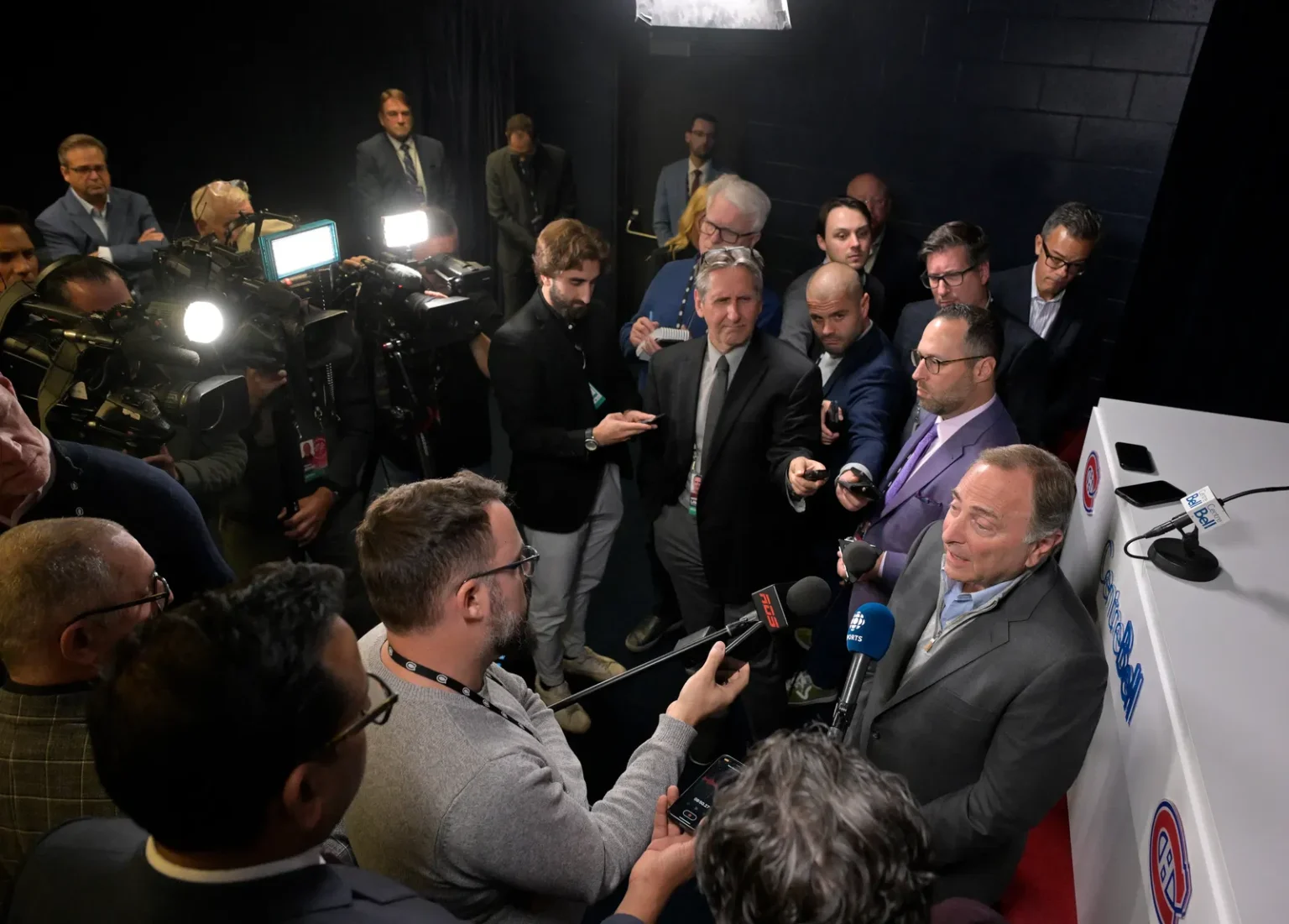It appears that the NHL and NHL Players' Association (NHLPA) have managed to avoid a major labor dispute starting in the 2026-27 season.
According to a report by Frank Seravalli of Daily Faceoff, a new collective bargaining agreement (CBA) extension has been agreed upon in principle by both parties, although nothing official has been signed yet. And with that extension comes some big changes for the NHL.
And these changes could also affect the Pittsburgh Penguins – as well as many other teams – in a pretty significant way.
Here are some of the changes and how each could be consequential for Pittsburgh looking ahead.
Longer season, shorter pre-season
With this change, the NHL regular season will expand to 84 games, and the pre-season will be reduced to four games.
Because of these changes, the regular season will begin at the end of September, teams will play all divisional opponents four times and all other conference opponents three times (with the home-and-away split with the opposing conference still intact), and players will play in less meaningless "warmup" hockey.
How does this affect the Penguins? For one, NHL veterans with 100-plus games will not be able to play in more than two pre-season games, meaning guys like Sidney Crosby and Evgeni Malkin won't be seen much prior to the start of the regular season.
Also, the Penguins haven't fared all that well against the Metropolitan Division in recent years, posting a pedestrian 32-31-15 record against divisional opponents over the last three non-playoff seasons. That figure only looks to be worse next season, as Pittsburgh isn't exactly a buyer right now.
Maximum contracts capped even more
Back in 2013, the maximum term for NHL contracts was reduced to eight years. Now, it has been reduced even further. Contract extensions for players with their current teams will be capped at seven years, while free agent contracts will max out at six.
While this is clearly a move – as a whole – designed to prevent NHL GMs from going nuts with dollars and term, it will also help prevent buyouts and give star players more opportunities on the open market to cash in.
This could be a good thing for a team like Pittsburgh since they are in the midst of a rebuild. If they were to make a splash in free agency in 2026 – as many think is the plan – it would help them in the sense that if they committed long-term to a bigger name, it wouldn't hurt them as much in the long run if things don't go as planned.
Free agency should be more exciting, which should bode well for a team like the Penguins, who will not be obligated to long-term extensions for anyone on their current roster for the next several seasons and will have plenty of free cap to spend starting in 2026.
No more playoff LTIR loophole
This is, potentially, a big deal for a team like Pittsburgh, who is in sell mode.
As it is now, teams with a bigger contract on long-term injured reserve (LTIR) prior to the trade deadline can load up on talent – so long as the player on LTIR doesn't play for the remainder of the regular season – to use in a non-capped playoff run.
Well, that's, reportedly, no longer the case. With the new CBA, a team's lineup must be cap-compliant for every game during the playoffs. This means that even if teams stockpile talent before the trade deadline and their roster isn't cap-compliant heading into the playoffs, the lineup they put on the ice has to be.
As a result, there may be more teams looking to dump salary by deadline day – which is a good thing for the Penguins. Pittsburgh will be able to take on some of those salary dumps for more picks and assets, which is only a good thing for a team trying to rebuild its prospect pool.
Rotating EBUGS a thing of the past
A fun NHL tradition appears to be coming to an end.
Teams will no longer be able to have a random emergency backup goaltender (EBUG) for any given game. Now, they will have to house a full-time EBUG, officially ending the tradition of seeing whether not Arnold Slick from Turtle "Crick" would get to go from beer league on Friday night to an NHL rink on Saturday.
The reason this could affect the Penguins? Well, they are likely to keep Mike Chiasson around to fill that role, as he has for Penguins' home games for years. However, it also opens the door for a team to, essentially, carry a thir goaltender – and the Penguins have a lot of goaltending in their system.
It's unclear at this point whether or not different people can rotate in and out of the EBUG slot and if there are limits in relation to the NHL roster. Nonethless, it should make goaltending battles more interesting going forward.
For a more comprehensive breakdown of the reported new CBA, click here.
Bookmark THN – Pittsburgh Penguins on your Google News tab to follow the latest Penguins news, roster moves, player features, and more!
Feature image credit: Eric Bolte-Imagn Images
Read the full article here


